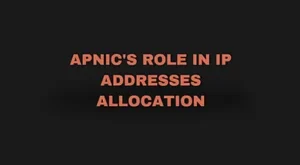How to Protect Your Public IP Address from Hackers
Your public IP address is your unique identifier on the internet, allowing websites, services, and even cybercriminals to locate and interact with your device. If hackers gain access to your IP address, they can launch attacks, track your location, or exploit vulnerabilities in your network. To stay safe, it’s crucial to take steps to protect your IP address from being exposed.
Table of Contents
ToggleWhy Protect Your Public IP Address?
Hackers can misuse your IP address in various ways:
DDoS Attacks – Cybercriminals can flood your network with traffic, causing slowdowns or complete shutdowns.
Geolocation Tracking – Your IP reveals your approximate location, which can be exploited for targeted attacks.
Unauthorized Access – Attackers can use your IP to scan for security loopholes in your devices.
ISP Tracking – Internet service providers (ISPs) and advertisers track your online activity to profile your behavior.
By protecting your public IP address, you enhance your privacy, security, and overall internet safety.
Ways to Protect Your Public IP Address from Hackers
1. Use a VPN (Virtual Private Network)
A VPN hides your real IP address by assigning you a temporary one from its secure servers. This encryption makes it nearly impossible for hackers, ISPs, and websites to track your real location and activity. Choose a reliable VPN service with strong encryption and a no-logs policy.
2. Enable a Firewall
Your router and operating system come with built-in firewalls that block unauthorized connections. Ensure that your firewall is enabled to prevent hackers from scanning and exploiting your network.
3. Change Your IP Address Regularly
If you suspect your IP is exposed or being misused, consider changing it. You can:
Restart your modem/router (works with dynamic IPs).
Contact your ISP to request a new IP address.
Use a VPN or proxy service to mask your IP temporarily.
4. Avoid Clicking on Suspicious Links
Hackers use phishing emails and malicious websites to trick users into revealing their IP addresses. Avoid clicking on unknown links, and always verify URLs before entering sensitive information.
5. Use a Proxy Server
Like a VPN, a proxy server acts as an intermediary between your device and the internet. It masks your IP address, adding an extra layer of security while browsing online. However, unlike VPNs, proxies may not offer end-to-end encryption.
6. Disable Unnecessary Network Services
Some devices and applications expose your IP through file-sharing services, remote desktop access, or peer-to-peer connections. Disable any unnecessary network features to reduce vulnerabilities.
7. Keep Your Router Secure
Change the default router login credentials to a strong username and password.
Regularly update your router’s firmware.
Enable WPA3 or WPA2 encryption for Wi-Fi security.
Disable remote management features to prevent unauthorized access.
8. Be Cautious on Public Wi-Fi
Public Wi-Fi networks are easy targets for hackers to intercept your data and IP address. Always use a VPN when connecting to public networks and avoid accessing sensitive information.
9. Check for IP Leaks
Even if you use a VPN or proxy, sometimes your real IP address can leak due to WebRTC vulnerabilities. Use online tools to check for IP leaks and disable WebRTC in your browser settings if necessary.
10. Monitor Your Network Activity
Use network monitoring tools or security software to detect any unusual activity linked to your IP address. If you notice unauthorized connections, take action immediately by changing your IP or blocking suspicious traffic.
Conclusion
Your public IP address is a critical part of your online identity, and protecting it from hackers is essential for maintaining privacy and security. By using a VPN, securing your router, avoiding suspicious links, and taking other precautions, you can minimize the risk of cyber threats and enjoy a safer internet experience. Stay vigilant and proactive in safeguarding your IP address from potential attacks.


